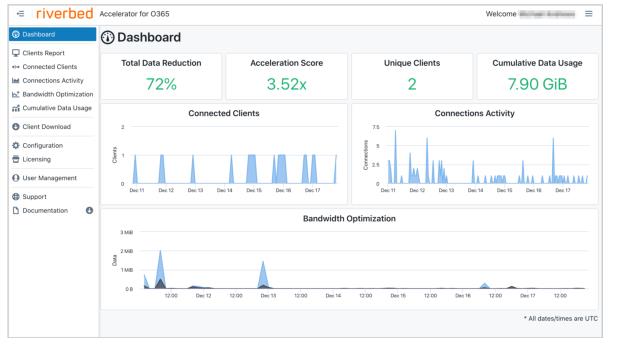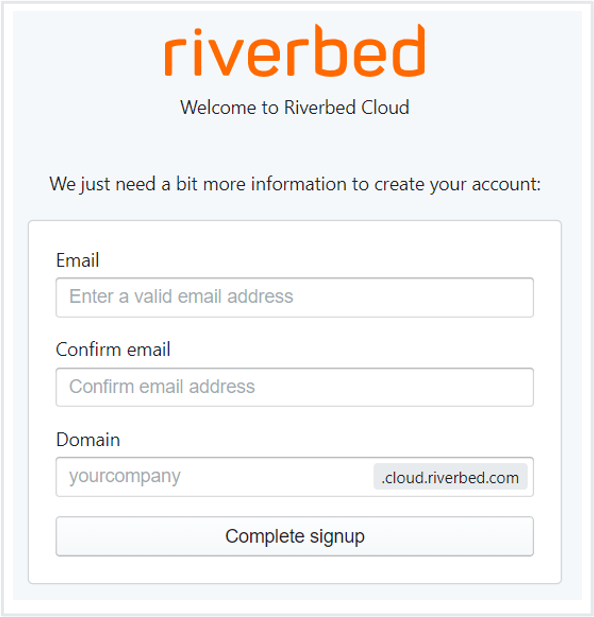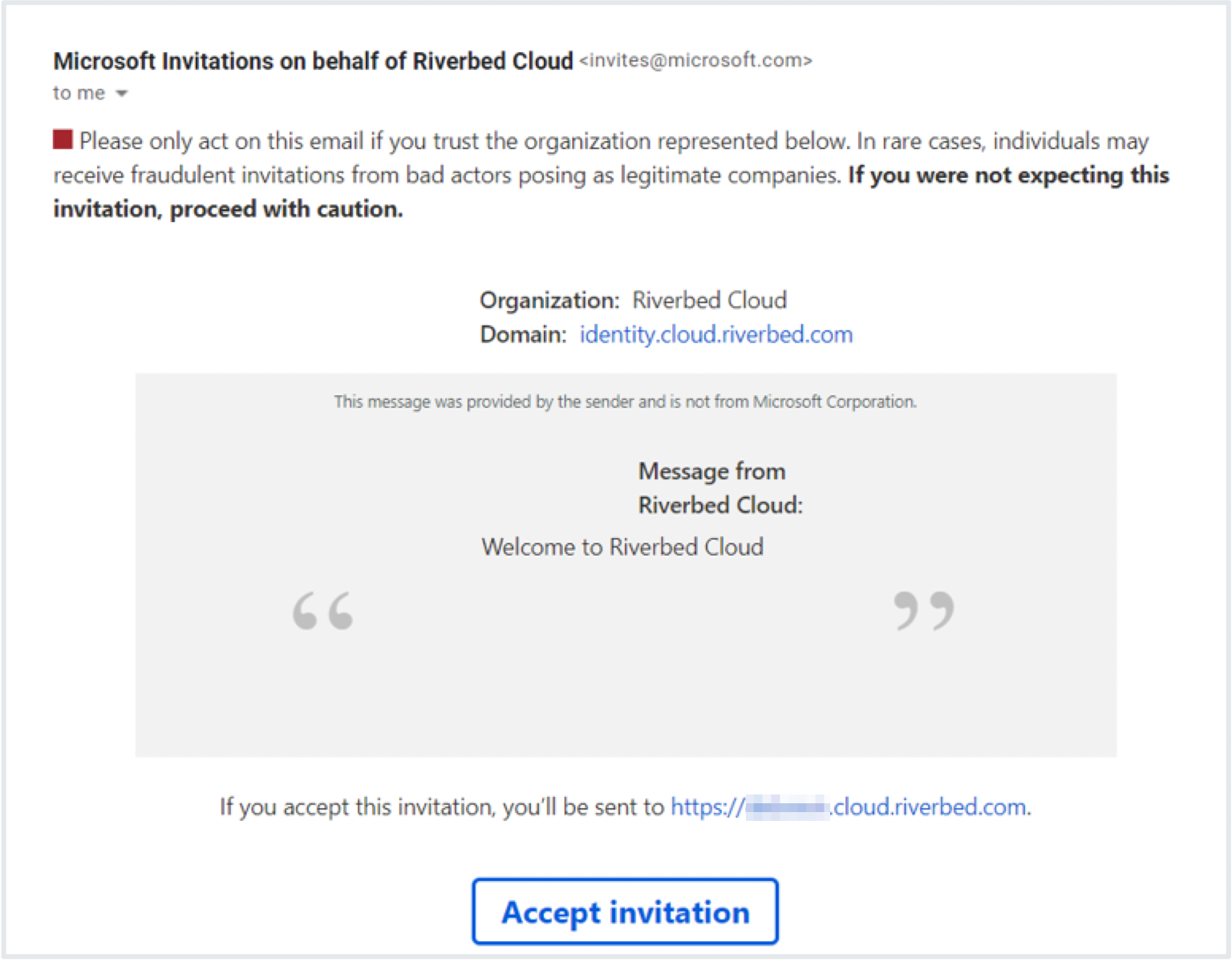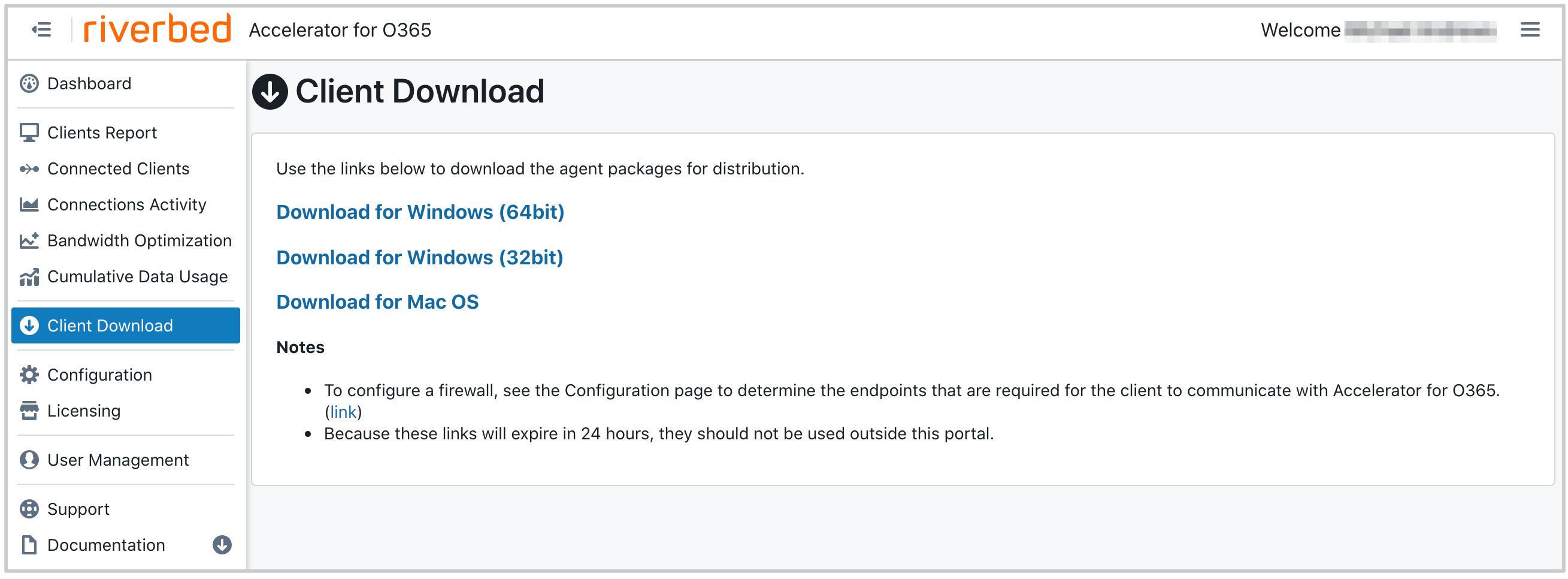Using Accelerator for O365
This chapter describes the Riverbed Accelerator for O365 product and includes these sections:
About Accelerator for O365
Accelerator for O365 is Riverbed’s software-defined, cloud-based service, which directly provides end-to-end acceleration and optimization of O365 traffic to client devices.
Figure 1‑1. Accelerator for O365 dashboard

Accelerator for O365 is comprised of two components: a cloud-based server component hosted and managed by Riverbed, and client software that you install on all your endpoint devices where you want O365 optimization. The cloud component provides a graphical user interface (GUI) where an administrator can, depending on permissions, access configuration details, download client installation packages, view run-time and historical optimization statistics, manage users, view license information, find product documentation, and contact Riverbed Support.
To get the service up and running for your organization, all you need to do is perform a quick and easy initial setup on the cloud side. After the initial setup is complete, you can download client installation packages and apply them to endpoint devices. After installation, the client package requires no further configuration.
About the initial setup
After you purchase Accelerator for O365, you will receive an email with a link to a form where you register on the Riverbed Cloud. The form requires a domain name for your organization and an email address for the administrator in your organization who will manage your Accelerator for O365.
Figure 1‑2. Accelerator for O365
registration form

After you complete the cloud registration, Microsoft will send an email on behalf of Riverbed to the address you supplied in the cloud registration form. The email invites the recipient, your Accelerator for O365 administrator, to log in to Accelerator for O365 and complete the setup process.
Figure 1‑3. Invitation email sent to your Accelerator for O365 admin

After your Accelerator for O365 administrator accepts the invitation, they will be forwarded to the Microsoft O365 account creation wizard if they do not already have an O365 account. If they do have an account, they will be prompted to log in to O365 and to grant permission to Riverbed Cloud to access information like your access credentials, name, email address, and photo.
Consult Microsoft documentation for details about creating and logging in to Microsoft O365 accounts.
After your Accelerator for O365 administrator logs in and grants access, they are redirected to the Accelerator for O365 dashboard where they are prompted to complete the initial setup.
After the cloud side is set up, it’s time to set up endpoint devices. See
About the client software.About the client software
The client software enables remote users to experience LAN-like performance regardless of how they connect (wireless, mobile, and so on). The client software connects an endpoint device to the Accelerator for O365 in the cloud and exchanges optimized data with the service. Install the client software on all endpoint devices where you want optimization.
Figure 1‑4. Client download page

The client software is preconfigured for your environment. We recommend that an administrator download the client packages, and then distribute and install them on endpoint devices using their tool of choice.
Links to the client download packages expire after twenty four (24) hours. Keep that time limit in mind when distributing these links. Links are refreshed soon after they expire, so you can simply redistribute the refreshed links if needed.
Endpoint system requirements
Component | Requirement |
Operating system | Windows 7 (32 and 64 bit), Windows 8 (32 and 64 bit), Windows 8.1 (64 bit), Windows 10 (32 and 64 bit) macOS 10.11 and later |
CPU | 1 GHz or higher |
Memory | 2 GB or higher |
Data store | 256 MB free disk space (min. required) |
VSP, CPU, and Memory | Minimum 1 CPU (1 GHz or higher) and 3 GB or higher |
Firewall settings
Open outbound ports 7870 and 443 (to the Client Accelerator Controller) and 7810 (to the service cluster).
If you’re using application control, you must allow these processes:
• Windows - rbtdebug.exe, rbtmon.exe, rbtsport.exe, and shmobile.exe.
• macOS - rbtdebug, rbtmond, rbtsport, and rbtuseragentd.
Compatible VPN and antivirus software
Accelerator for O365 supports the virtual private network (VPN) and antivirus software listed in these sections.
For details about supported VPN software, go to Knowledge Base article
S14999.
Windows VPN and antivirus software
VPN software | VPN software (continued) | Antivirus software |
Array Networks AT&T NetClient Checkpoint Remote Access Client Cisco SSL VPN AnyConnect Cisco VPN Client Citrix Access Gateway Citrix NetScaler VPN Client | Dell SonicWall Aventail F5 Firepass Fortinet VPN Juniper Network Connect Junos Pulse Microsoft L2TP IPsec VPN and SSL VPN Microsoft PPTP | Netilla SSL VPN McAfee Internet Security Suite 2010 Microsoft Windows Firewall (allow rbtsport) Symantec Endpoint Protection 11.0 |
Mac VPN and antivirus software
VPN software | Antivirus software |
Apple VPN in PPTP mode Cisco SSL VPN AnyConnect Juniper Network Connect Junos Pulse OpenVPN OpenVPN (Tunnelblick) Palo Alto Networks VPN (GlobalProtect) | IP Firewall (IPFW) macOS X Application Firewall McAfee Internet Security Symantec for Mac |





